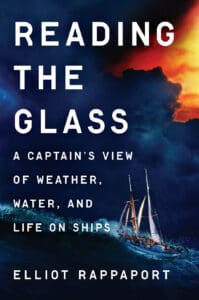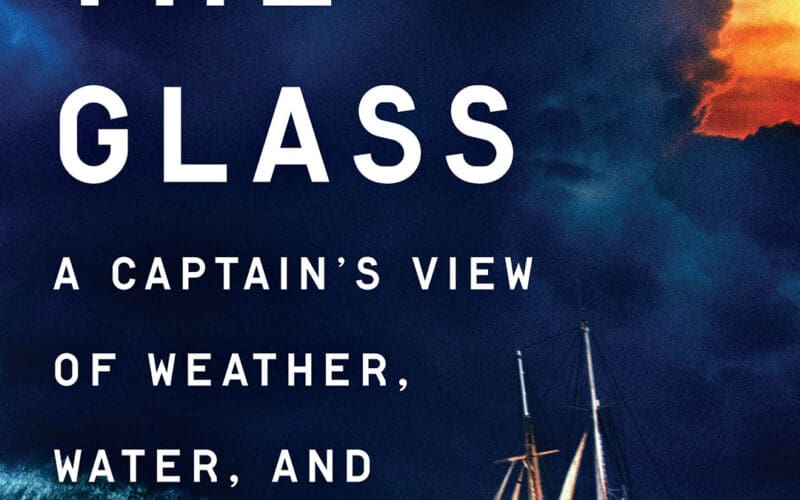 READING THE GLASS: A Captain’s View of Weather, Water, and Life on Ships
READING THE GLASS: A Captain’s View of Weather, Water, and Life on Ships
by Elliott Rappaport
Dutton, 323 pages: $28
Works about the sea are a peculiar literary institution. The best of them offer a harsh unblinking portrait of the mariner’s essential solitude and isolation. Elliot Rappaport, shipmaster, scholar, gifted writer, does this with perception and compassion. But he also provides much more: a richly embroidered text that interweaves his narrative with a tale of wind and weather and the history of seafaring and exploration. Of particular note is his understandable obsession with storms at sea as well as his survey of the broader story of the science and art of meteorology. He takes his book’s curious title, by the way, from the practice of bygone skippers in sail to reckon barometric pressure from the height of a glass-enclosed column of mercury.
Rappaport, 58, holds a 1,600-ton master’s license for auxiliary sailing vessels. And while he has spent much of the past few years ashore at Maine Maritime Academy, Castine, teaching seamanship, he has, by his own account, put in a total of 10 years’ sea time as master of traditional sailing ships, primarily Maine Maritime’s training schooner Bowdoin and ships of the SEA Education Association, Woods Hole, Massachusetts. The latter include Robert C. Seamans, the splendid steel brigantine designed by Laurent Giles and close relative of Irving Johnson’s famous Yankee.
But the most evocative feature of the book, at least for this reader, is the author’s yarn of worldwide voyages in sailing vessels crewed by apprentices learning the mariner’s trade. And it is here that we detect the strain of melancholy that lies just below the surface of a seafarer’s life. In a scene that he has repeated an untold number of times, Rappaport hands over command to a relief master and flies home to an airport miles away from the village on the Maine coast where his wife, Karen, will be waiting for him at the bus depot.
Rappaport, bone weary, jams his bag behind the seat of their car. “Up a back road rutted by frost is our little house. Inside, the dusty light falls on shelves of books and memorabilia — ivory carvings from Greenland, a woodcut purchased in the Seychelles Islands.” Yet in his mind’s eye he retains an image of the ship he has left. She is “under full sail,” he writes, “the wind warm on her quarter and the low atolls of the Tuamotus passing by to either side.”
Still, he appends a coda:
“Grateful to be home while the world sails on.”
Alan Littell

